Photographs: Reuters Rediff Business Desk
The world's most trade-friendly economy is Singapore, according to the World Economic Forum.
The WEF's Global Enabling Trade Report 2009 measures and analyses factors enabling trade in 121 industrialised and emerging economies around the world. The report covers four areas: market access, border administration, transport and communications infrastructure, and business environment.
So which the top 10 nations when it comes to trade-conduciveness? And how trade-friendly is India? Read on to find out. . .
World's most trade-friendly nations
Image: A devotee lights lamps during the Navratri festival at a temple in Amritsar.Photographs: Munish Sharma/Reuters
India occupies the 76th position, reflecting a mixed performance on the four pillars. Although the country has a fairly good border administration and business environment, domestic and foreign market access continues to be significantly restricted.
India ranks 116th on the applicable component; with tariff barriers representing a more serious impediment than non-tariff barriers.
India's border administration meets many needs of importers and exporters, although it continues to be affected by corrupt practices. Trade-related transport infrastructure and the relevant services are equally fairly well developed in India, ranking 51st and 46th, respectively.
The country is well connected through maritime routes, although it needs more airports and high-quality roads. India could also benefit from improvement in ease of hiring foreign labour as well as reduced business costs of terrorism.
The United States comes in at 16th position overall. China ranks 49th among the countries covered.
World's most trade-friendly nations
Image: The Singapore Flyer observation wheel.Photographs: Tim Chong/Reuters
Singapore is the world's most trade-friendly nation. Its positive results reflect high rankings in all four subindexes. The country's very open market, as well as a highly efficient and transparent border administration, a well-developed transport and communications infrastructure, and an open business environment all contribute to this result.
Customs procedures are assessed as the least burdensome in the world, and time and cost for both import and export are among the lowest for all countries covered. Singapore's exporters also face relatively low tariffs in target markets (13th).
However, less congested roads and improvements to the ICT infrastructure could further increase the ease of getting goods across borders in Singapore.
The country's excellent regulatory environment facilitates operations of traders through openness to foreign participation, fair domestic competition, and a highly transparent and efficient government.
World's most trade-friendly nations
Image: Fireworks light the sky over Victoria Harbour in Hong Kong.Photographs: Victor Fraile/Reuters
Hong Kong SAR's open domestic market mirrors the economy's high dependence on exports and imports, placing it as the second most-friendly trade economy in the world.
Hong Kong does not apply tariffs on imported products, yet its exported products to foreign markets face more barriers than Singapore's, as reflected in tariffs faced (119th) combined with a low margin of preference in target markets (112th).
Hong Kong's strong ranking also rests on its efficient customs procedures, well-developed transport and communications infrastructure, and a regulatory environment that promotes and facilitates an open and secure business environment.
The economy's openness to foreign participation is attested to by the prevalence of foreign ownership and relative absence of capital controls (1st).
Traders could, however, further benefit from improvements to the very congested roads (89th) and more commitments to open up the transport sector under the General Agreement on Trade in Services (GATS) framework (55th).
World's most trade-friendly nations
Image: An employee places almonds on pralines at a Swiss chocolate plant in Zurich.Photographs: Arnd Wiegmann/Reuters
Switzerland placed 3rd overall, scoring very high in three of the four main components of the Index. It ranks 10th for the quality of border administration, despite the country's very high costs to import (84th) and export (92nd).
The WEF report also revels the very high quality of the transport infrastructure (9th) and of the associated services (12th), and when it comes to the availability and use of information and communications technologies (ICTs), Switzerland is second to none.
Finally, the environment offered to business is particularly friendly (6th) thanks to its excellent institutions, fierce competition, openness to foreign participation, and low prevalence of crime.
Switzerland's major weakness resides in the market access component, in which it ranks 38th because of the high level of complexity of the import tariff structure and fairly high protection of agricultural markets.
World's most trade-friendly nations
Image: An off-shore wind farm stands in the water near the Danish island of Samso.Photographs: Bob Strong/Reuters
Denmark (4th) ranks among the top five countries in seven out of the nine pillars of the Index. In particular, it ranks 2nd both for the efficiency and the transparency of border administration, notably thanks to the low level of overall corruption.
This, along with several other factors such as the government's efficiency (4th), the intensity of local competition (4th), and the high level of security (4th) contributes to creating an extremely conducive business environment in Denmark, where the only draw back remains the relative difficulty of hiring foreign labor (36th).
The data also reveal high levels of quality and availability of transport (5th) and ICT (4th) infrastructure. Such strong results contrast, with Denmark's 86th rank in the market access component, which mainly reflects European Union (EU) policies in the area of agricultures as well as the complex tariff structure applied by the European Union.
World's most trade-friendly nations
Image: A dogsled team carries tourists down the frozen Torne River in Jukkasjarvi in Sweden.Photographs: Bob Strong/Reuters
Ranked just behind Denmark at 5th place overall, Sweden, like its neighbor, possesses a world-class infrastructure, very transparent and efficient border administration, and a highly favorable business environment.
Yet crime and violence seem to be more of a problem (22nd), and so are the difficulties of hiring foreign workers (50th).
With respect to market access, Sweden (88th) posts a comparable performance to Denmark, the only difference coming from the slightly lower score on the Index of non-tariff measures.
World's most trade-friendly nations
Image: A Calgary Stampeders cheerleader flies a Canadian flag during Canada Day.Photographs: Todd Korol/Reuters
Coming in at 6th, Canada is one of the three non-European countries within the top 10. It posts a strong and remarkably consistent performance across the board.
In particular, it is second only to France for the availability and quality of transport infrastructure, which is excellent across all modes of transportation.
Border administration (12th) is characterized by efficient customs services (15th), speedy and hassle-free clearance procedures, and low levels of corruption, with the only dent being the cost to import (95th) and export (96th).
Canada ranks a high 13th in the market access pillar. The import-weighted tariffs average just 2.4 percent, and nearly 90 percent of imports enter the country free of duty.
Finally, Canada makes little use of non-tariff barriers (21st) in international comparison, although the tariff structure in place is highly complex (79th).
World's most trade-friendly nations
Image: A longboat, known as the Oseberg ship, at the Viking Ship Museum in Oslo, Norway.Photographs: Heiko Junge/Scanpix Norway/Reuters
At 7th place overall, and third among the Nordic countries, Norway owes its rank to a consistent performance across all the pillars. The business environment is particularly attractive (5th), thanks to favorable regulation, the efficiency of government operations, its low prevalence of crime and violence (2nd), and -- despite a certain reluctance -- foreign participation (44th).
Another strength is Norway's efficient import and export procedures (6th). In the market access pillar, Norway, at 21st, displays much better results than the Nordic members of the European Union, yet high agricultural tariffs and a complex tariff structure remain a challenge.
World's most trade-friendly nations
Image: People dressed as elves postmark letters with the stamp from Santa Claus' Post Office on the Arctic Circle near Rovaniemi, northern Finland.Photographs: Kacper Pempel/Reuters
Finland, the land of Santa Claus, is ranked 8th.
The results mirrors the openness of this nation to international trade and investment as part of its successful economic development strategy.
World's most trade-friendly nations
Image: People dressed as Flinserl participate in a parade during the daffodil festival in the Austrian village of Bad Aussee.Photographs: Leonhard Foeger/Reuters
Austria comes in at rank 9.
The Enabling Trade Index uses a combination of data from publicly available sources, as well as the results of the Executive Opinion Survey, a comprehensive annual survey conducted by the World Economic Forum with its network of Partner Institutes (leading research institutes and business organizations) in the countries included in the report.
The survey provides unique data on many qualitative institutional and business environment issues, as well as some indicators related to international trade.
World's most trade-friendly nations
Image: A pair of swans swim in front of a lit up windmill at dusk in Kinderdijk, The Netherlands.Photographs: Michael Kooren/Reuters
The Netherlands (10th) completes the top 10 of the ETI. One of the world's main hubs for trade, the country receives outstanding marks for the quality of its transport infrastructure (ranking 2nd, behind only Germany), and the associated services (ranking 2nd, behind Singapore).
In particular, the quality of the country's seaports and its connectivity to the rest of the world come as no surprise, given that Rotterdam has one of the world's largest and busiest maritime ports. This, combined with an efficient and speedy border administration (4th), makes the movement of goods to and from the Netherlands almost seamless.



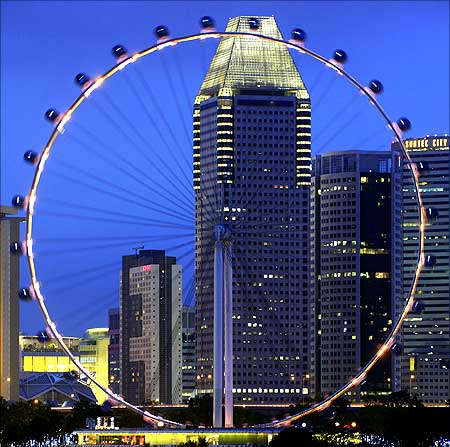
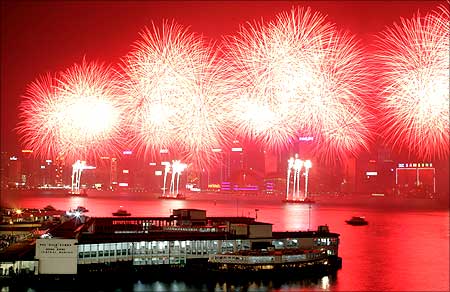

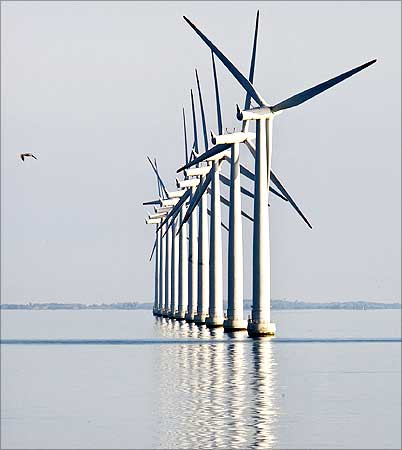


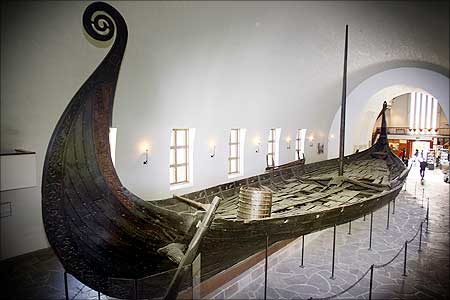


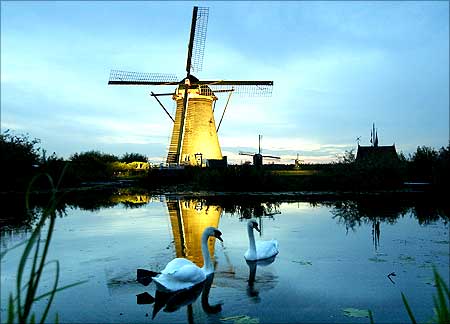
article